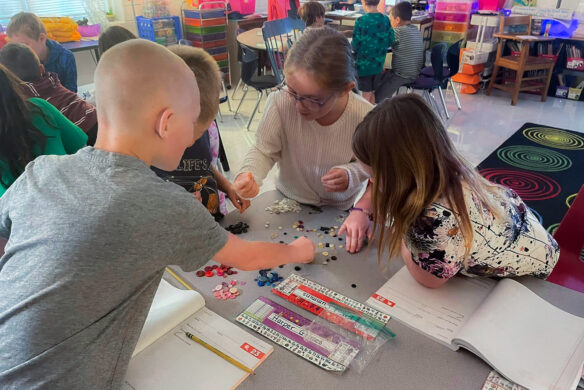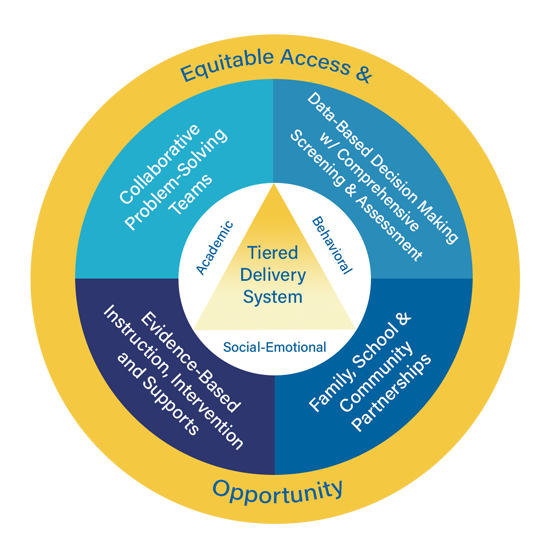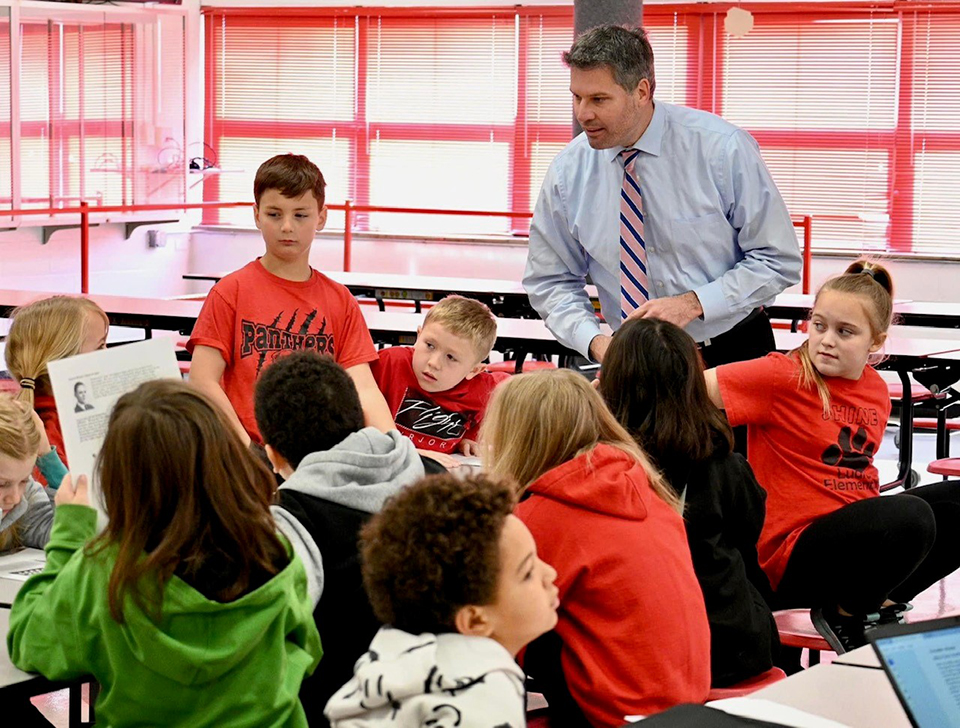
Schools in Franklin County integrated MTSS into an initiative called Den Time to fit their students’ needs, giving them flexibility in their schedules for interventions, counseling work or whatever else they may need.
Submitted photo
Editor’s note: This story is part of a series on Kentucky’s Multi-Tiered System of Supports (MTSS) and districts that are in the process of implementing their own MTSS.
Leaders in Franklin County schools have been working to integrate a multi-tiered system of supports (MTSS) into their district for the past seven years.
“It’s something that took years to try and figure out, making sure it’s purposeful, making sure the communication of what it is going to be used for. It’s not a quick fix or an easy fix with MTSS,” said Kimberly Young, director of assessment and program effectiveness for Franklin County schools. “Now I feel like we’ve got a couple of years under our belt and the high schools are starting to see that.”
MTSS is an effort to support student achievement and social-emotional behavioral competencies through an integration of core instruction, assessment and intervention.
The vision of the Kentucky Department of Education (KDE), “each and every student empowered and equipped to pursue a successful future,” sets the focus for the work of the agency and is also the goal of an integrated MTSS.
The multi-tiered system works around the equitable access and opportunity component. This surrounds the framework to represent the commitment to equity within all components of MTSS.
At the center of the model is a triangle representing the tiered delivery system, showing support designed to meet the academic, behavioral and social-emotional needs of all students.

The KyMTSS model
Young said MTSS has allowed schools within the district to find areas of focus that may be impacting student learning and behaviors.
“I’ve had some schools that implemented it into specific initiatives, and those initiatives skyrocketed and drastically changed,” she said.
Schools in Franklin County integrated MTSS into an initiative called Den Time to fit their students’ needs.
“It allows in their schedule the flexibility if students need interventions,” said Young. “If students need small group counseling work, it has given time in the schedule for that. They are not going to get pulled out of a class.”
Den Time is one example that can be used in MTSS to address school mental health, social-emotional learning, trauma-informed schools, resiliency practices and bully-free schools.
Working to interconnect the areas of academic and behavior skills, Franklin County includes attendance figures in its data and research, saying it plays a key part in many areas of focus.
“I think bringing attendance to the forefront plays such a part and MTSS has given it a home,” said Young.
She said although they have seen positive impacts, like increased attendance compared to last year, these changes have not gone without challenges.
“I think one of our biggest challenges we’ve had is what does that look like between the different scheduling,” said Young. “We have multiple secondary schools, so their schedules look different.”
Over the years, Young said they have been able to change, adapt and learn with MTSS.
“It’s given us a framework of creation,” she said, “and a monitoring process for throughout the spring and into the next year.”



Leave A Comment